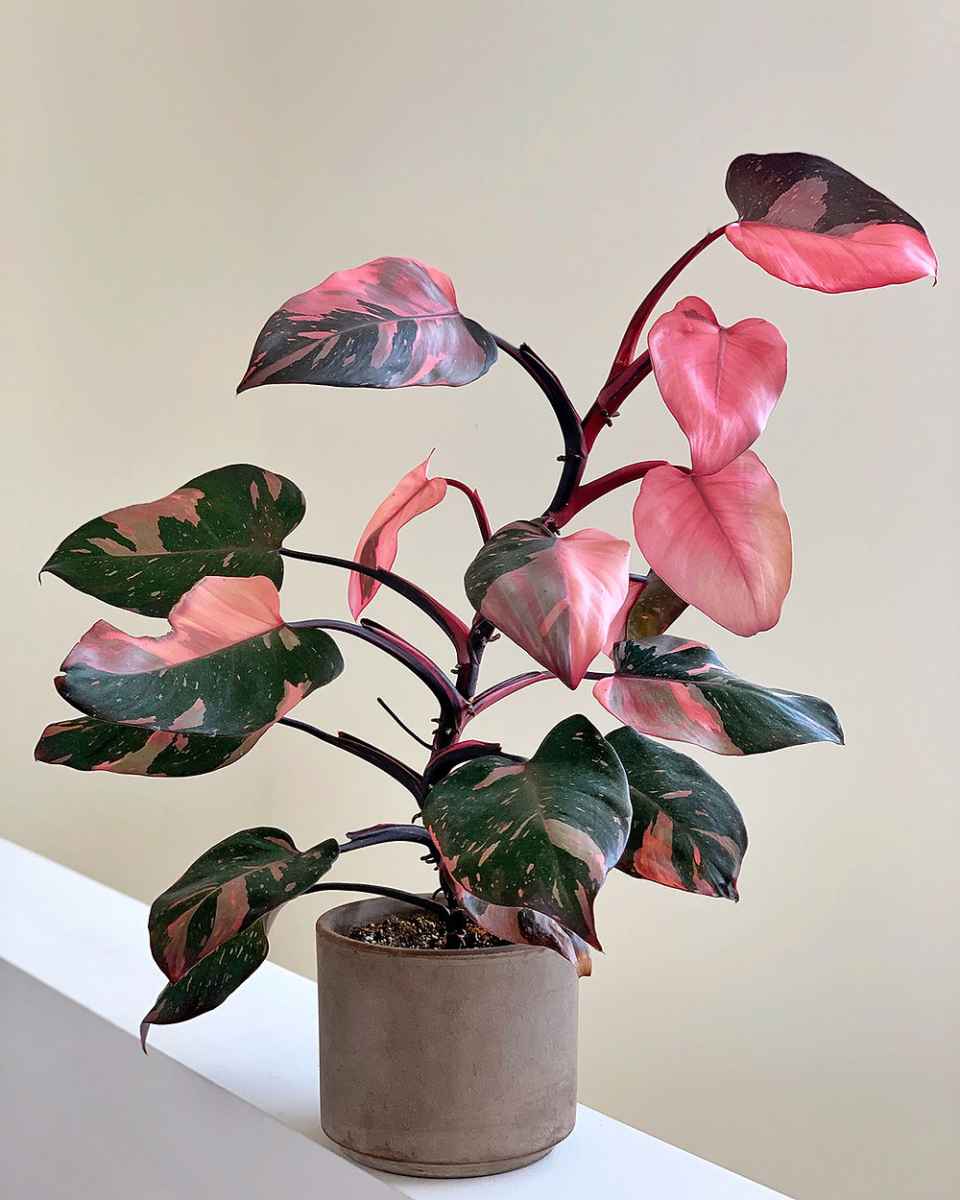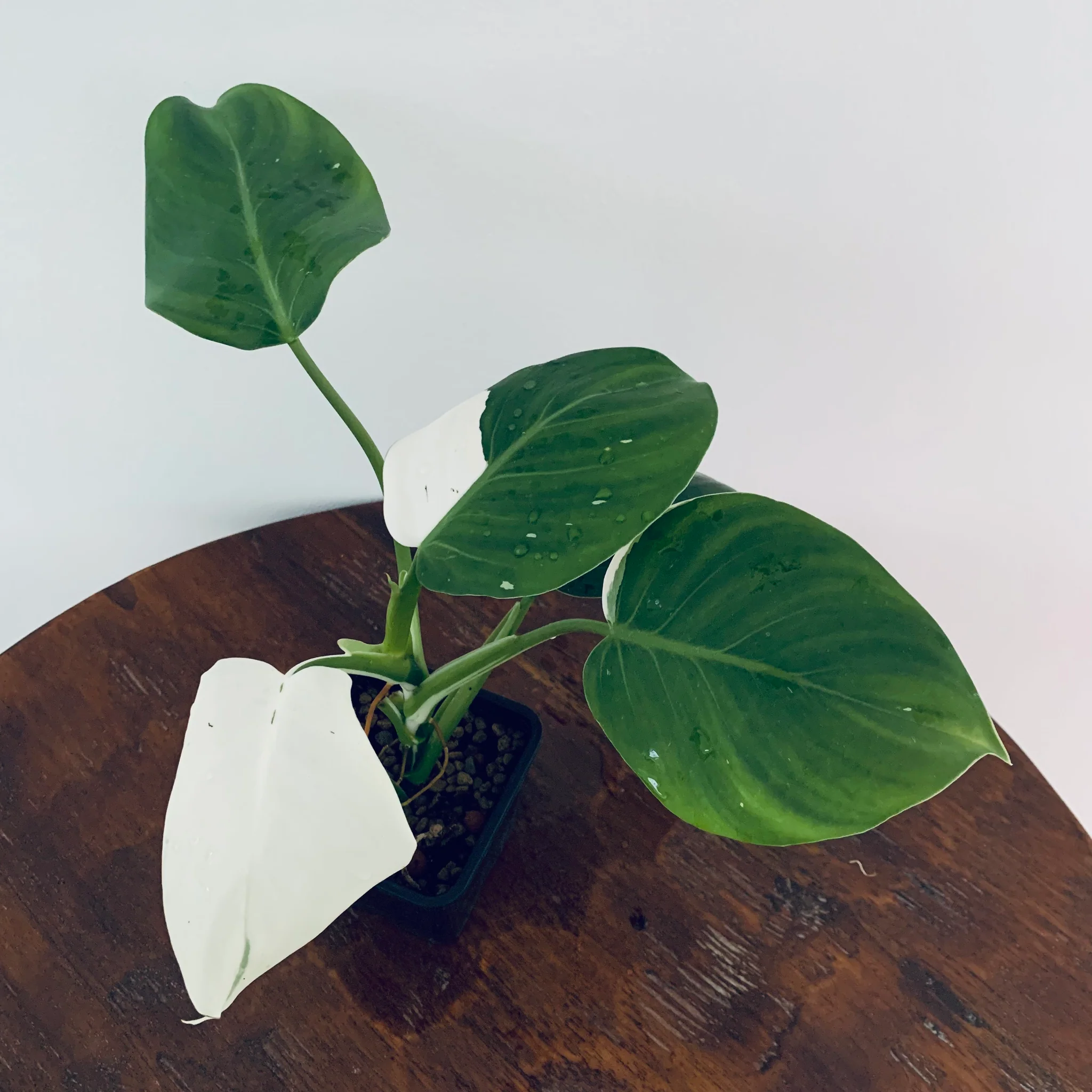
Becoming a plant parent is a journey that doesn’t only bring you joy, but there are so many great benefits, and is literally good for your health. Even though spider plants and ferns are beautiful, you may be looking for something a little bit out of the ordinary. If you want your next houseplant to be something a little more unique that’s still easy for beginners, keep reading!
Rare houseplants for beginners
Rare houseplants are considered rare due to the fact that they’re not easy to find, and there are quite a few! Here are some of the ones we think are best for the beginner plant parents!
1. Pink Princess Philodendron
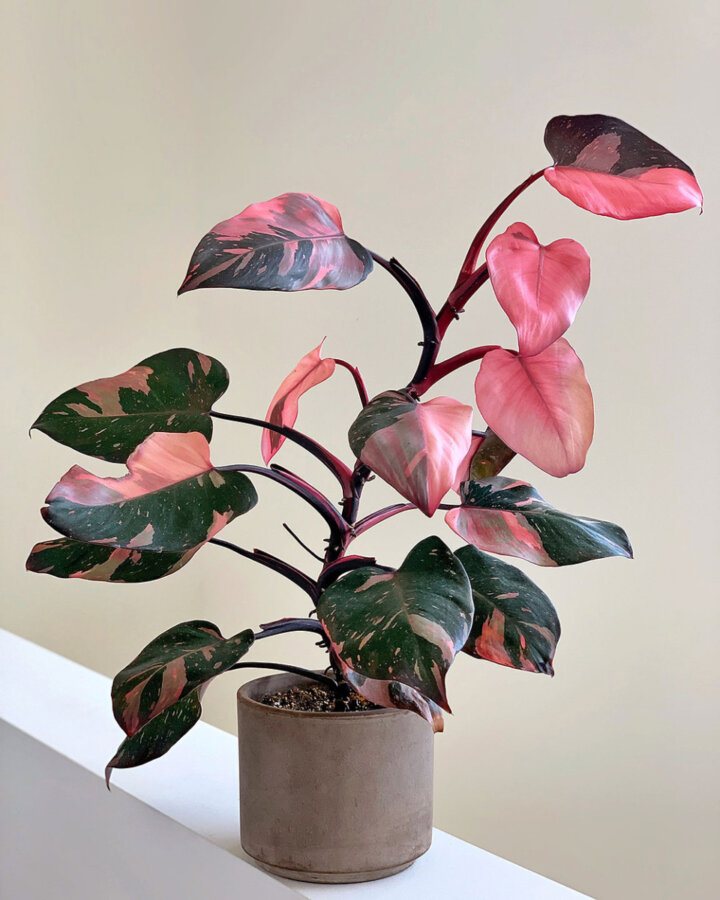
This tropical pink vining plant adds a pop of color to your plant collection and your home and they’re pretty easy to take care of! Care tips for a happy pink princess include:
Light: Bright indirect light; without proper light, it will lose it’s pink pigmentation!
Humidity: Does best with some humidity, but can tolerate normal household conditions.
Soil mix: Well draining, acidic, loamy, soil full of organic matter
Water: Water when the top half of the soil is dry – do no overwater as this plant is prone to root rot.
Fertilizer: Fertilize once a month with a well-balanced liquid fertilizer during the spring and summer.
2. White Wizard Philodendron
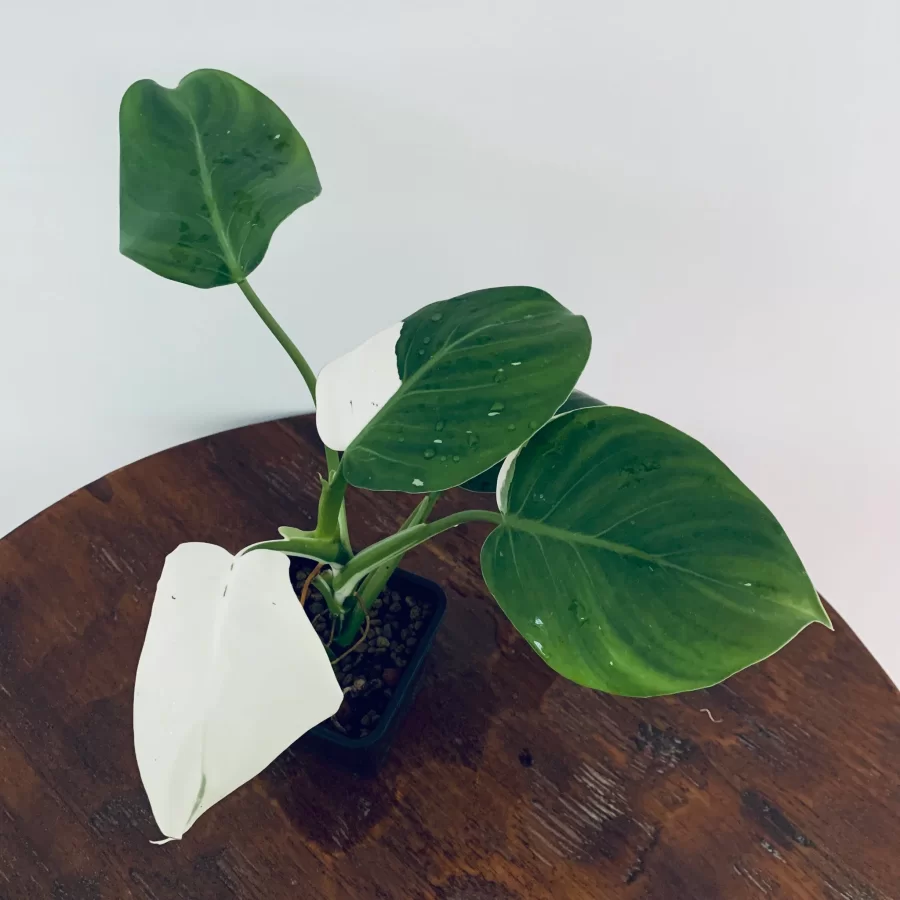
This white variegated philodendron is an easy plant to take care of while still adding variety to the usual green plants! Care tips for a healthy plant include:
Light: Bright indirect light, not enough light and it will turn back to green; does not like full sun
Humidity: Will love 50% humidity (tips for increasing humidity).
Soil mix: Does best in a potting compost with 20% ratio of perlite to create a well-draining soil; does not like soggy soil.
Water: Water when the top half of the soil is dry. It does not tolerate being overwatered.
Fertilizer: Will grow faster with a well-balanced liquid fertilizer during spring and summer.
3. Philodendron Melanochrysum
/philodendron-melanochrysum-plant-profile-5205175-hero-0459e6364e8e4545a65535ba18874bd1.jpg)
Also named the black-gold philodendron, it’s known for it’s dark green velvety leaves and bright yellow veins. Tips for caring for a melanochrysum include:
Light: Dappled, indirect sunlight; avoid direct sunlight.
Humidity: Will tolerate normal household conditions, but will do best with an increase in humidity.
Soil mix: Use pure sphagnum moss or “one part peat moss, one part perlite, and one part orchid bark mix” for moist, well-draining soil high in organic matter.
Water: Water thoroughly when the top 2-3 inches of soil is dried out.
Fertilizer: Feed with a well-balanced liquid fertilizer once a month from early spring to late summer.
4. Variegated Burle Marxe
This rare philodendron will be quite the unique find in addition to being stunning with it’s multi-colored, arrowhead-shaped foliage! Care tips for this plant include:
Light: Bright, indirect light – does not do well in low-lighting.
Humidity: Will do best if you can increase the humidity around this plant!
Soil mix: Mix peat-moss, perlite and coco coir to keep it moist, airy and slightly acidic.
Water: Water when top inch of soil is dry. Do not let the roots get soggy or let the soil dry out!
Fertilizer: Use a well-balanced, liquid fertilizer diluted by half the recommended strength in the spring and summer months.
5. Ring of Fire Philodendron
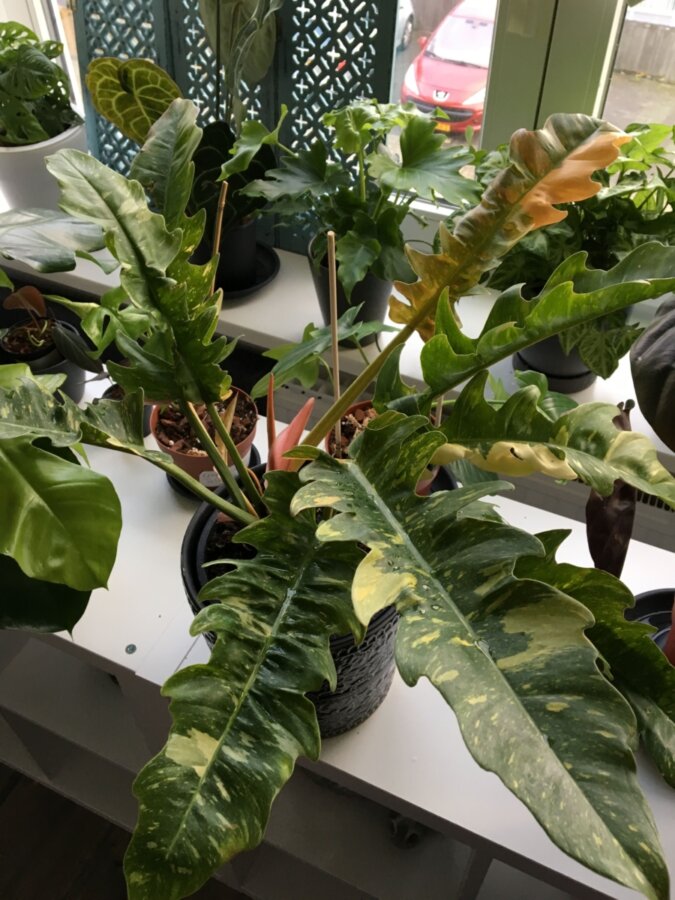
The ring of fire is a very unique, variegated philodendron that will be a great addition to your collection, big or small! Tips for caring for this plant include:
Light: Bright, dappled sunlight; but can tolerate low-lighting, though it does best receiving light.
Humidity: Keep away from vents and drafts; will do best in moderate humidity.
Soil mix: Use an aroid mix to keep it moist but airy. Avoid sand.
Water: Water when the top 3 inches of soil are dry; water less in the winter.
Fertilizer: Use a slow- releasing fertilizer 3 times during the spring and summer.
6. Monstera Albo
While this is one of the most expensive and hardest plants to find, it is an extremely amazing and unique addition to your plant family and pretty easy to take care of. If you get your hands on one, tips for taking care of one include:
Light: Bright, indirect or filtered sunlight for the majority of the day.
Humidity: Will thrive when kept in humid conditions.
Soil mix: Prefers a well-draining potting mix “consisting of peat moss, perlite, coco coir, chunky orchid bark and worm castings.”
Water: Water thoroughly when the top inch of soil is dry. Will tolerate dry soil better than soggy soil.
Fertilizer: Stick to schedule giving it fertilizer every 6-8 weeks during it’s growing season and less during the winter months.
7. Florida Beauty Philodendron
This trailing plant is a great addition to your plant family with it’s variegated leaves, unique shape, and cream colored flowers! Tips for taking care of this plant include:
Light: Keep in bright, indirect light in order to maintain is variegation.
Humidity: Will benefit from 50-60% humidity.
Soil mix:Create a well-draining, airy soil that contains matter light perlite, bark and vermiculite.
Water: Water when the top 1/4 inch of soil is dry, about 1-2 times per week. Be sure not to waterlog.
Fertilizer: Use a well-balanced liquid fertilizer once a month in the spring and summer months.
Contactus for more innovative design tips.

